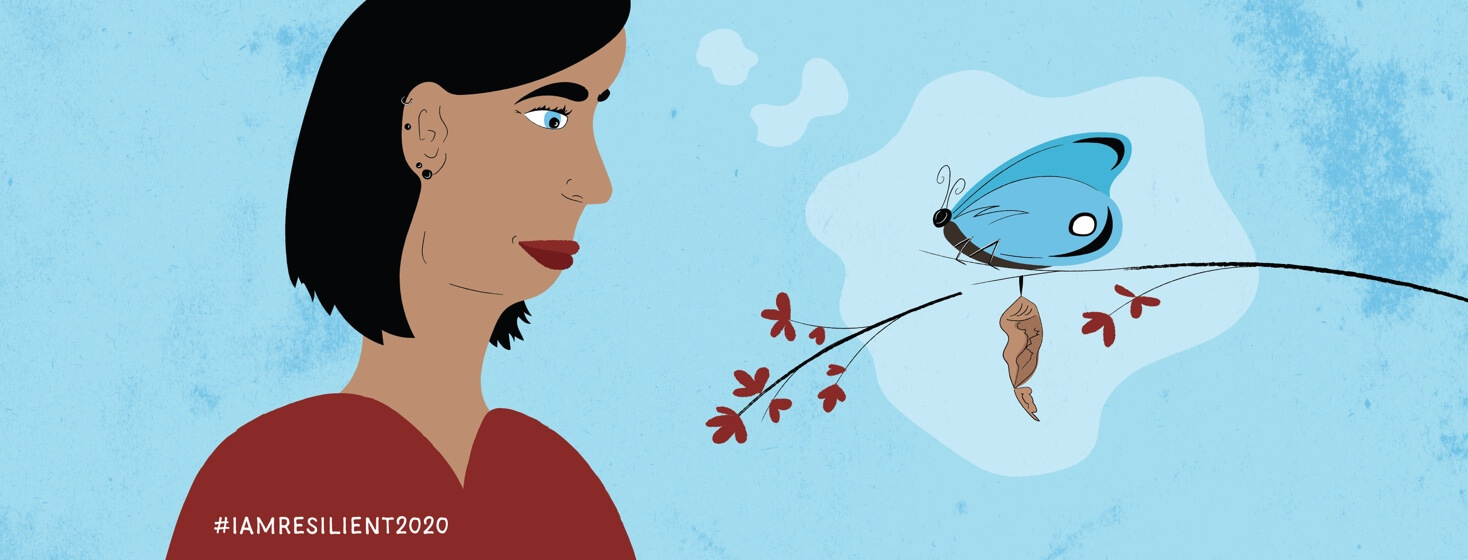Finding Re-mission in Remission
It wasn’t me who thought of this clever double meaning to a much-beloved word in cancer circles. Instead, it was my high school English teacher, Mrs. Bruns. She has been a steady source of support since my myeloma diagnosis with her frequent cards and notes of encouragement.
It was her handwritten letter at Christmas in which she casually brought the word to my attention. She pointed out how remission becomes “re-mission, a new mission, or a re-thought mission.” English teachers must love dissecting words like we math teachers do algebraic equations. In any case, how had I overlooked this word before, so obviously pregnant with powerful and personal meaning?
Hoping for a blissful remission
Since early on in this journey, I’ve written about the new lease on life that cancer has offered me. I’ve talked about letting go of past hurts, exploring passions, and finding my new calling -- my unrealized life’s mission. Surely I must have written or at least thought about this already.
But I hadn’t, and truthfully, those re-mission feelings came more easily right after diagnosis. I was living at Hope Lodge in a large, supportive community. Between being away from home and having a full-time caregiver, I had fewer chores and less responsibilities. I was thriving on the novelty of the situation and the time to rest, relax, and recover. Other than showing up for infusions and appointments, I had no reason to be productive.
I had all the hope in the world that after my induction cycles and stem cell transplant that my life would be better than before. I’d find my knight in shining armor, land the job of my dreams, and live blissfully in remission until they found a cure for this disease.
Start a Forum
My remission reality
As grateful as I am to be in remission, it hasn’t been nearly as novel and restful. Now at home, still single and unable to work, I balance rest and recovery with needs of the house, yard, dog, and kids. Remission means daily oral chemotherapy for maintenance, which brings with it an even heavier dose of fatigue and GI issues. It also means monthly blood tests to make sure I’m still there, in remission -- a club where I pay the dues, and every month check to see if I’m still a member.
I haven’t felt as strong of a life mission since remission. That initial compelling drive to discover my purpose has yielded to merely finding an acceptable quality of life. Plans are made with contingencies, passions are explored from the sofa, and goals are continuously tweaked and fine-tuned. Some days, the mission of remission feels like a quest solely for survival and longevity.
We don’t need a remission for a re-mission
But as the word itself so beautifully reminds us, remission could be about so much more than simply survival. Remission offers us a time to pause, reflect, regroup, reassess, and reprioritize. We can ask ourselves: What do we want our lives to stand for? Which relationships do we wish to nurture? What elements of our lives will we bring into our future, and which would be better off left behind? We can reaffirm our commitments, revise our goals, rearrange our priorities, and reshape our futures.
And while remission is a wonderful gift, none of us needs a cancer diagnosis nor a remission in order to seize the opportunity to recalibrate our lives. Each of us was born with a terminal diagnosis and an unknown expiration date. Yet even our finite amount of time contains boundless moments to embrace physical, emotional, and spiritual renewal, even as we deal with discomfort, grief, and uncertainty. We can always choose to keep our eyes on the silver linings, even as they are blurred with our tears. I can't think of a better re-mission for remission.

Join the conversation